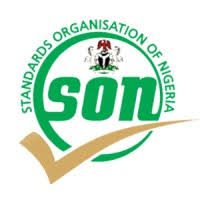
CBN may raise banks’ lending rate to 17% in January — LCCI
The Lagos Chamber of Commerce and Industry (LCCI) has said that the Central Bank of Nigeria (CBN) benchmark lending rate is expected to rise to 17 percent during the MPC meeting this month to curb persistent inflation and prevent capital flight.
The rates rose from 11.5 per cent in January and peaked at 16.5 per cent as at November 2022.
LCCI had earlier recommended that rate hikes alone is not enough to curb inflation, adding that issues around real factors like food supply disruptions, high energy cost, scarcity of FOREX, and the security challenges in the agricultural production locations, which have fuelled low production and high logistics cost, need to be addressed to curb inflation.
Nigeria’s inflation rate rose to a new high of 21.47 per cent in November 2022 from 21.09 per cent in October 2022, according to the National Bureau of Statistics (NBS). This translates to a 6.07 per cent increase compared to November 2021’s 15.40 per cent.
The advocacy body noted that the country needs fiscal interventions to support strategic sectors like manufacturing, agriculture, transport logistics, and more allocation of FOREX to productive sectors in 2023.
LCCI disclosed this in a statement titled “The LCCI New Year Statement on the Economy 2023,” which was signed by its Director-General, Dr. Chinyere Almona, and made available to Nigerian NewsDirect in Lagos on Monday.
The country’s economy in 2022 recorded growth in the first three quarters but slowing down from 3.54 percent in Q2 to 2.25 percent in Q3. LCCI said in 2023, the telecoms sub-sector is expected to record growth above the 10.1 percent achieved in Q3 2022.
“We expect to have a growth reported for the last quarter of 2022. The slowdown was driven by decline in aggregate demand in the face of inflation spikes, commodities’ supply chain disruption, high energy cost, and FOREX scarcity. In 2023, we expect to see growth in sectors like manufacturing, agriculture, transport, telecommunications, and trade.
“With Nigeria having the third largest subscriber base in Africa (after South Africa and Egypt), the telecoms sub-sector is expected to record growth above the 10.1 per cent achieved in Q3 2022 driven by the growing deployment of Payment Service Banks (PSB) by the telcos, increase in subscribers using more telcos’ services, and the expected innovation coming with the launch of the 5G technology.
“The Government needs to be more sensitive to the regulation of the ICT sector to promote growth and support private sector operations,” LCCI said.
Despite insecurity, poor road network to connect markets, high cost of farm inputs to recently, the flooding disaster caused by climate change, LCCI said that the country’s agriculture sector recorded growth all through the year 2022.
The economic thinktank stated that government’s intervention in 2023, through targeted financing support to the sector can boost agricultural production, create jobs, and lower the spiking food inflation that has been responsible mainly for the rising headline inflation all through 2022.
LCCI said, “The African Continental Free Trade Agreement (AfCFTA) provides huge opportunity to explore the African markets with our agricultural products. We urge the Federal Government to scale up plans of establishing special economic zones where agro-processing activities are supported to produce finished food products for our markets and for export. With some of these challenges resolved, we expect to see a higher growth rate at above 3 percent higher than the less than average 2 percent recorded in 2022. We reiterate our call earlier made that government at all levels should invest more on prevention of climate change induced natural disasters like flooding.”
The economic think tank also stated that scarcity of FOREX for import of inputs, weakened consumer demand due to weak purchasing power, high energy cost, logistical challenges, policy uncertainties, and harsh regulatory environment, impacted the manufacturing sector negatively in 2022.
“With these factors persisting into 2023, we may likely record a growth in the sector away from the negative growth of -1.9 per cent as at Q3 of 2022. With lowering imports due to forex scarcity, local manufacturing could rev up in growth to meet the growing unmet local demand for hitherto imported finished products.
“However, this can only happen if we address issues like rising inflation, scarcity of FOREX, high energy cost, high interest rates, and logistics challenge due to insecurity in most parts of the country. In the case of subsidy removal by the new administration, we should expect some shocks to the economy in the short term with possibility of adjusted pricing and demand in response to market forces in the long run.
“The Dangote Refinery coming into operations by mid-year will boost production levels and support growth in the manufacturing sector. However, the contribution of manufacturing to GDP may fall from the 8.2 per cent recorded during the third quarter of 2022 except the Government takes urgent and targeted financing support to critical productive infrastructure in the country,” LCCI said.
On construction and real estate sector, LCCI said the sector will respond positively to a rise in investment from people wishing to store value through real estate investment this year.
It said, “The last quarter of 2022 may have witnessed huge investment in this sector that would transmit into real growth in the first quarter of 2023. The coming on Stream of Ajaokuta Steel Company is expected to support a solid growth in the construction sector.
“The recently approved access to pension funds for mortgage policies can have a positive effect on the real estate sector as more people are able to afford a mortgage to purchase houses. Some of these innovative financing options may support a robust growth in connected sectors. This, again, calls for best practice regulation by the Government to create an enabling environment where private sector operations can thrive. The windfall from the electioneering campaigns by some actors may also find their way into the real estate sector.
“With the dire need to boost foreign exchange earnings, the Government should invest more in export support infrastructure and create linkages into the African market where we can export more products like steel from the Ajaokuta Steel Company to earn foreign exchange in the long run. With all of these, the sector can contribute higher rate than the 5.2 percent recorded in Q3 2022.”
As at the end of the first half of 2022, Nigeria’s total debt service stood at N2.597 trillion, higher than the prorated sum of N1.978 trillion by N619.81 billion (31.33 per cent). Also, the interest payments on Ways and Means collected from the CBN amounted to N714.74 billion. According to data from the Budget Office of the Federation, the sum of N1.333 trillion was used for domestic debt servicing, a difference of N52.34 billion (4.09 per cent) from the prorated half year projection, while N549.70 billion was spent on external debt servicing during the period under review. The economic thinktank said that with the approved plan of the Federal Government to restructure its Ways and Means loans of N23 trillion, Nigeria’s total debt stood effectively at N67.7 trillion by end of 2022.
LCCI called on the Federal Government to be watchful of the rising public debt, saying, “Clearly, we must watch the cost implications of our borrowing and spending.”
With increased spending by the Federal Government for census and general elections, the economic thinktank further noted that the government must block revenue leakages, reduce costs, and empower the private sector to create jobs and generate more revenue to the government.
“The Federal Government needs to sustain its targeted interventions in selected critical sectors like agriculture, manufacturing, export infrastructure, tackling insecurity, and free more money from subsidy payments. It is very imperative that we need sound monitoring and evaluation over the budget allocations to capital projects and defence spending to respectively tackle infrastructural deficit and the fight against insurgency.
“We urge the government to tackle oil theft to earn more foreign exchange, borrow from cheaper sources to reduce the burden of debt servicing, and pave way for the removal of the fuel subsidy by the incoming government,” LCCI added.



